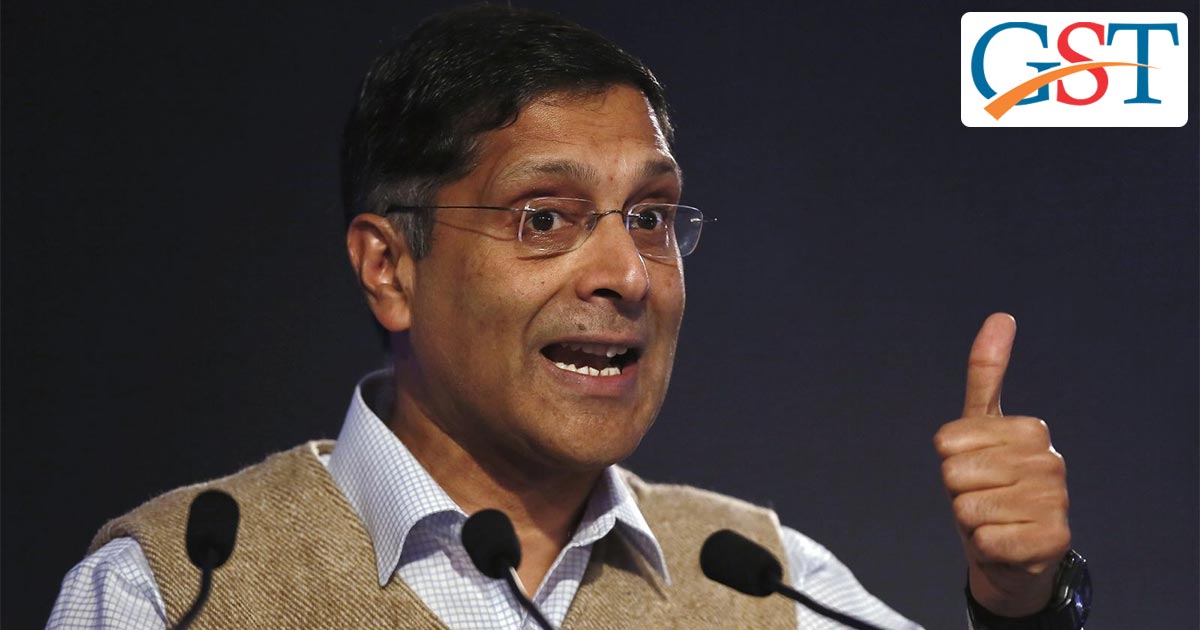Arvind Subramanian, Chief Economic Advisor India mentioned in a statement that introducing a single GST rate is not relevant in India instead a three slab GST rate framework is a better option for stabilizing the revenues.
During an NCAER function, Arvind Subramanian addressed and said that in a country like India, a single GST rate can never a good idea. He further emphasized that the debate in India should be on ‘why can’t we have three‘ instead of current ‘why not one’.
Currently, GST attracts four GST rates; 5%, 12%, 18% and 28%. The Congress President Rahul Gandhi has directed a single rate GST and favoured to formulate it.
Arvind Subramanian further favoured his own statement and mentioned GST as a regressive tax and single rate structures couldn’t support the same unless there are proper system and instruments to control the rising costs which will hurt the poor.
He exactly said, “…I think over time we will see simplification. For example, once the revenue stabilizes, 28% can (be rationalized)…. but the broader point I want to make is that why can’t we have three (tax slabs). That’s what we should ask for.”
Even Union Finance Minister, Arun Jaitley agreed that a single GST rate in India is not a good approach as it is only performing in the countries where the purchasing power of population is very high and of similar capacity to buy.
Subramanian mentioned that newly implemented indirect tax regime “has not been too bad” considering the difficulties faced in the first year. He further said, “My own view is the more you rely on a carrot, and less you rely on sticks, you facilitate formalization of an economy. That’s what I like about GST. It is not heavy-handed. It’s a kind of self-policing.”
Read Also: Maharashtra Govt. Requests For Lower GST on Butter And Ghee
GST has subsumed a dozen applicable taxes of state and central government, VAT and excise duty with the introduction of single GST. The panel headed by Chief Economic Advisor (CEA) issued a report in 2015 and stated for a range of GST rate which was 15-15.5% revenue-neutral rate and giving preference to the lower rate.
Furthermore, the CEA as well mentioned that the country requires a free fiscal council which carries independent opinions regarding government accounting matters for public finances.
He mentioned during the event, “One of the things we all were unanimously in favour of was a fiscal council. I think we need to get more independent people doing this (government accounting) with better access to data…People should have trust that everything is properly accounted for.”
Recommended: Central Government Recommends 46 Amendments In GST Provisions
